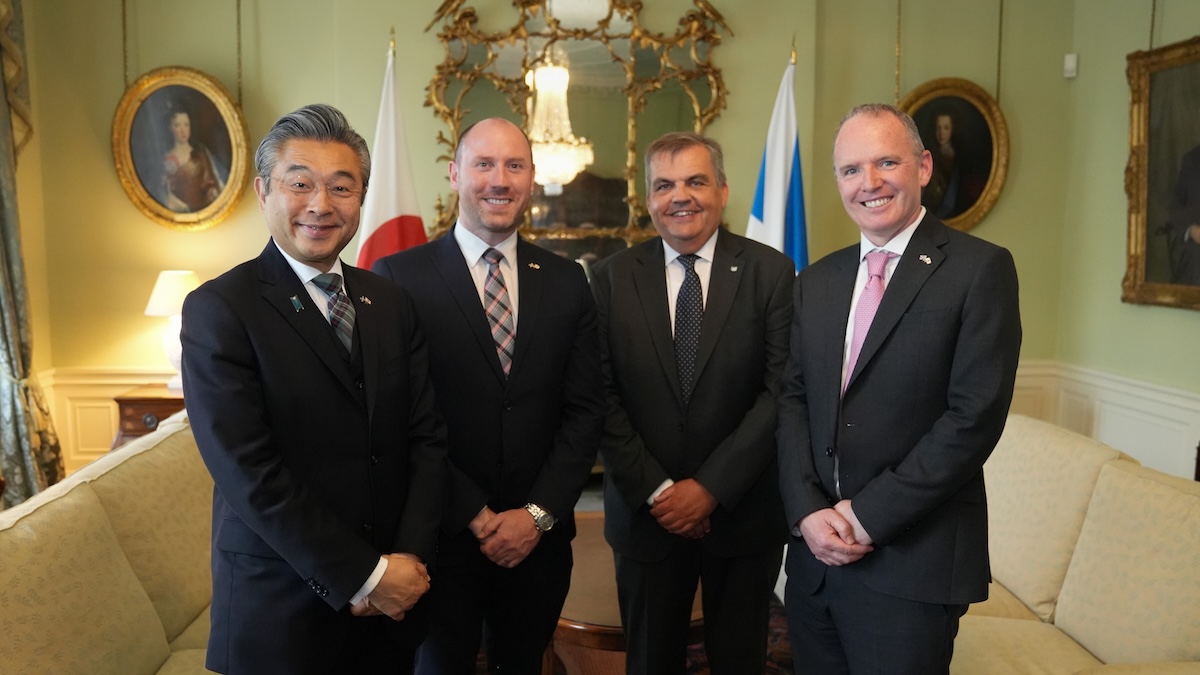A new £14 million project in Scotland will aim to use AI for faster data analysis and to improve medical scans – with benefits for both patients and health services.
Canon Medical Research Europe, based in Edinburgh, will develop AI based smart solutions to automate routine tasks. The automation will help to speed up patient scanning and allow consultants to make quicker and better-informed decisions for patients such as those receiving cancer treatment.
The company, a spinout from the University of Edinburgh in 1994, originally called Voxar, was acquired by the Japanese multinational in 2016, and now employs a team of over 100 scientists, engineers and clinical experts led by Dr Ken Sutherland.
Scottish Enterprise, the national business support agency, has awarded £3.6 million towards the project, which will be showcased at Japan Expo’s Digital Health and Life Sciences Activation taking place from in Osaka this week.
Health secretary Neil Gray said: “Scotland has a long-standing reputation for innovation in health and life sciences, and Canon Medical Research Europe exemplifies that strength. This investment in AI technology has the potential to transform the way we deliver healthcare by speeding up diagnosis, supporting our clinicians, and ultimately improving outcomes for patients.
“I’m proud to see Scottish expertise leading on such cutting-edge developments and look forward to showcasing this innovation on the world stage at Expo 2025 in Japan.”
Dr Ken Sutherland, president of Canon Medical Research Europe, said: “We have a strong focus on AI and automation with the goal of helping clinicians to diagnose and treat more patients. It makes me very proud to think that the innovation we create here is Scotland can benefit the people of Scotland and, through our parent company, the rest of the world.”
Adrian Gillespie, chief executive of Scottish Enterprise, said: “This cutting-edge research project, led by Dr Sutherland and his team at Canon Medical Research Europe in Edinburgh, has the potential to be transformative for the NHS in Scotland and for health services around the world.
“Scotland’s life sciences and healthtech industries deliver life-enhancing benefits to patients, while making an enormous contribution to our economy – the life sciences sector alone contributes almost £10.5billion annually. That is also why we are taking a talented Scottish delegation of healthtech companies to Japan Expo to showcase what Scotland has to offer and to forge new connections that will deliver trade and healthcare opportunities.”
The full list of companies joining the delegation at Expo 2025 Japan are:
- Touchlab – Scottish robotics company pioneering ultra-thin electronic skin technology that allows robots, prosthetics, and remote-operated machines to sense and respond to their environment with human-like tactile perception.
- Konpanion – Designs empathetic companion robots for alleviating loneliness and enhancing well-being. Their flagship product, Maah, resembles a ‘living pillow’ and offers emotional support by emulating pet-like behaviours.
- NamiSurgical – Produce miniaturised ultrasonic scalpels that can be used in minimally invasive surgeries. The device uses ultrasonic energy to cut and coagulate tissue, offering high precision and minimal thermal damage to surrounding areas. Its miniaturised design is essential for integration into robotic systems, allowing surgeons to perform delicate procedures with enhanced control and accuracy.
- iGii – Develops advanced electrochemical biosensing solutions powered by its proprietary nanomaterial, Gii. Specialising in next-generation diagnostics, iGii integrates Gii into scalable, high-performance platforms for healthcare, environmental, and industrial applications.
- J&D Wilkie – Textile manufacturers, family owned, dating back to 1868. The company specialise in high-performance technical textiles for various industries including medical applications.
- Talking Mats – A social enterprise dedicated to enhancing the communication abilities of individuals with communication difficulties. Founded by speech and language therapists, the organisation has developed an innovative visual communication framework known as ‘Talking Mats’




